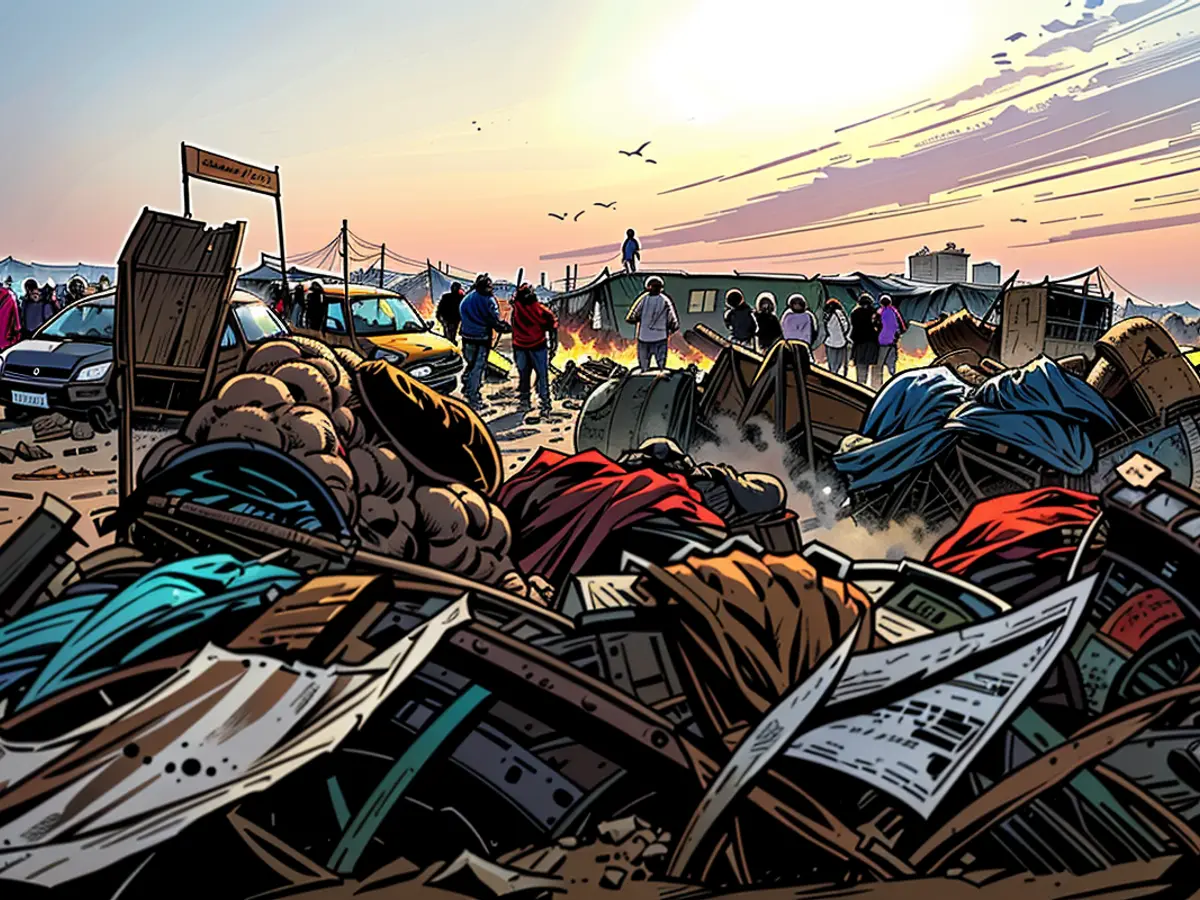Conflict in the Middle East - Hamas seeks an immediate permanent truce, while Israel favors a temporary one, a report claims.
In the negotiations between Israel and the radical Islamic Hamas group to put an end to the Gaza conflict, a long-lasting ceasefire is the primary issue holding things up. The Hamas insists on an agreement with a permanently halted hostility, which two officials disclosed in a "The Times of Israel" article on Thursday. Israel's government, on the other hand, only wants a temporary ceasefire where more prisoners are freed.
Fearing a potential resumption of hostilities after the release of some captives in Gaza, the Hamas government remains adamant about a lasting ceasefire. Israeli Prime Minister Benjamin Netanyahu has maintained that the war won't end until his government's goals - like dismantling the Hamas military capabilities - are achieved.
In late May, US President Joe Biden put forth a three-part plan for a ceasefire in the Gaza war. It calls for a temporary truce, where female, elderly, and sick Israeli captives are liberated. In turn, Palestinian prisoners held in Israel would be freed. Afterward, the fighting would permanently cease, and the remaining captives would be allowed to leave. Finally, under this proposal, reconstruction of the Gaza Strip would commence.
The UN Security Council has voiced support for this plan and recently passed a resolution that reflects this. However, the Hamas has put forward a series of amendment proposals. Israel's government has yet to respond definitively to the US plan.
A Channel 13 report also mentioned that the Hamas is demanding the rebuilding of the Gaza Strip to begin in the first phase and that Israel is not allowed to veto which Palestinian prisoners under their control are released. An Israeli official felt this was the most drastic reply possible from the Hamas. "Under these circumstances, it's challenging to initiate negotiations," they observed.
US Secretary of State Antony Blinken remarked on the Hamas' amendments as partially unrealistic on Wednesday, following a meeting with his Qatari counterpart Mohammed bin Abdulrahman Al Thani. Although he did not provide more information, Blinken conveyed a willingness to address the concerns. Al Thani vowed to "bridge the gap" between the two sides and help mediate a ceasefire. "We hope this phase will be as brief as possible," he insisted. Qatar and the United States are both serving as diplomats in the absence of direct dialogue between Israel and the Hamas.
The WHO is voicing concerns about the dire humanitarian conditions in the Gaza Strip. Millions of people there are on the brink of starvation, and their situation is alarmingly similar to a famine. More than 8,000 children under five years old have severe malnourishment, and there's little indication of improved supplies of food. WHO's Director Tedros Adhanom Ghebreyesus stated, "Despite reports of increased food deliveries, there's no sign that those in need are getting enough and appropriate nutrition."

Read also:
Despite Hamas' insistence on a permanently halted hostility in Gaza, Israel only agrees to a temporary ceasefire for the release of more prisoners. The Middle East conflict's ongoing negotiations between Israel and Hamas are heavily focused on disagreeing on the duration and conditions of a potential ceasefire in the Gaza Strip. The UN Security Council's recent resolution supports a US plan for a temporary truce, which includes the release of captives, followed by a permanent end to fighting and Gaza Strip reconstruction.








